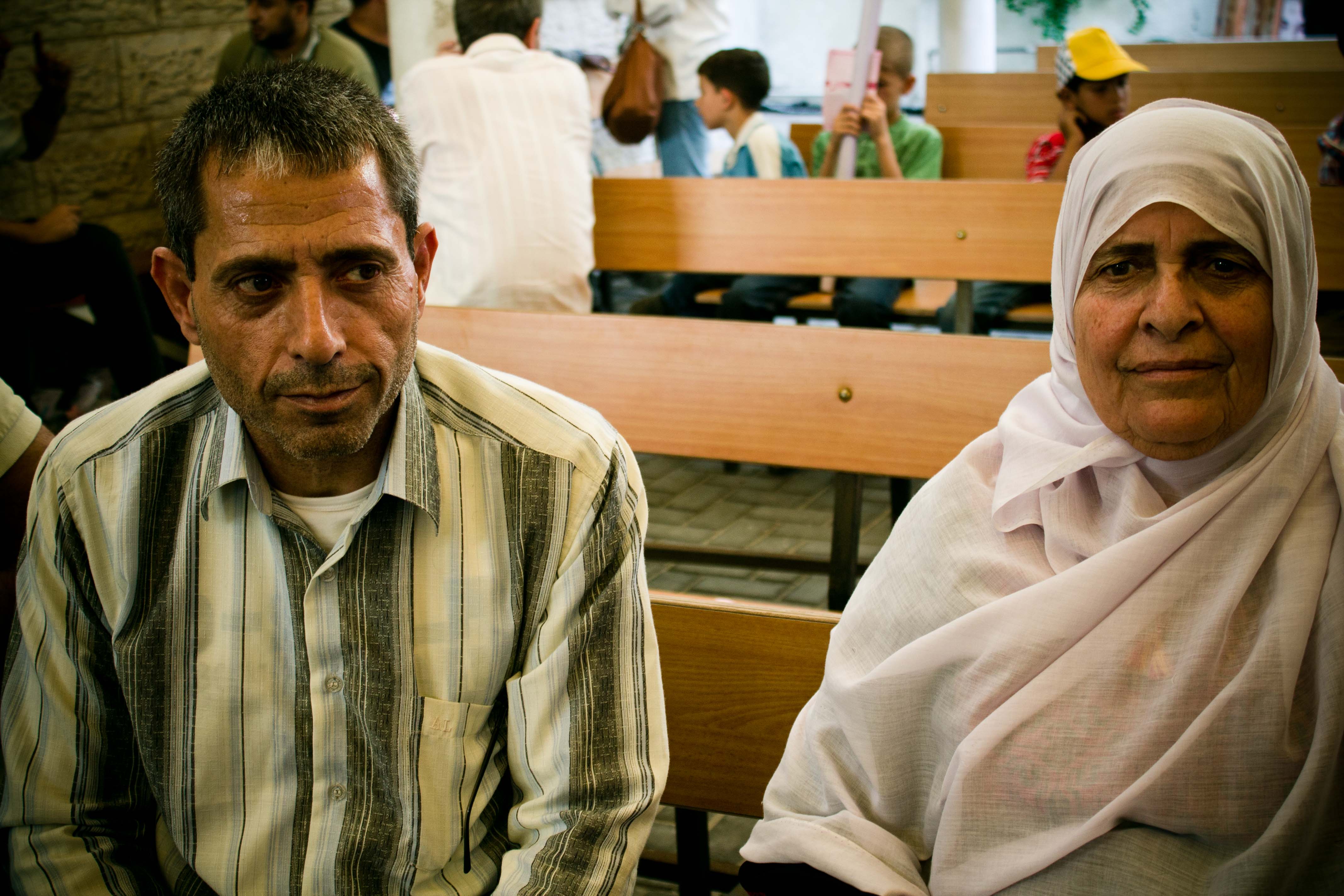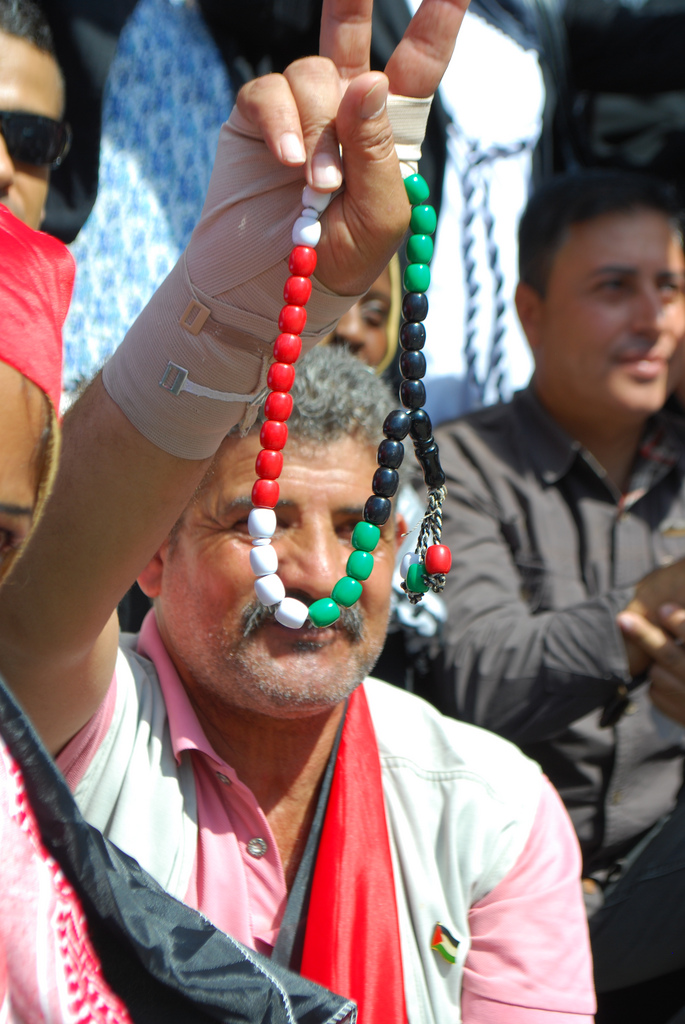Tag: Demonstration
-
Photo: A freed detainee joins his mother at the Gaza protest she began 18 years ago
18th October 2013 | International Solidarity Movement, Gaza Team | Gaza, Occupied Palestine Ibrahim Baroud joined his mother, Ghalia Baroud, or Um Ibrahim, at Gaza’s weekly sit-in for Palestinian prisoners, which she co-founded, on Monday morning. Baroud, a former Palestinian detainee, was captured by Israeli forces on 9 April 1986, at the age of 23.…
-
Bil’in continue their weekly demonstration against the occupation
12th October 2013 | Friends of Freedom and Justice | Bil’in, Occupied Palestine Yesterday, 11th October, Israeli soldiers fired tear gas canisters at a Palestinian family while they were attempting to harvest their olives. This coincided with the weekly Bil’in demonstration against the Apartheid Wall where Israeli forces fired tear gas canisters, stun grenades and rubber-coated steel…
-
Photos: Activists in Gaza form human chain for Palestinian detainees
5th October 2013 | International Solidarity Movement, Gaza Team | Gaza, Occupied Palestine On Thursday afternoon, Activists for Prisoners organized a human chain outside the International Committee of the Red Cross’ Gaza City office to support Palestinians detained by Israel.



